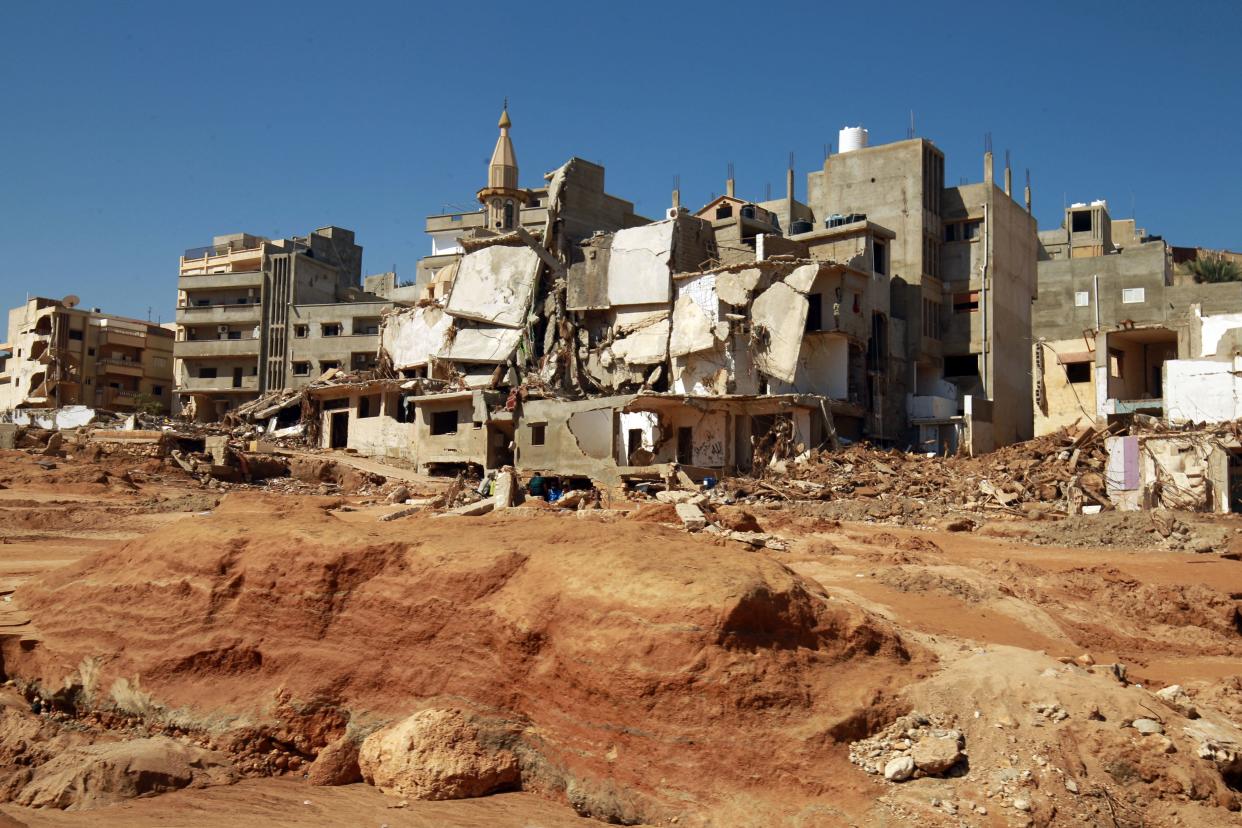Why the Libya floods are a human-made disaster

Flooding has devastated Libya. The Washington Post reported that as many as 20,000 people are dead in the eastern part of the country, killed by floodwaters so large — 23 feet tall at one point — and forceful that they “gouged asphalt from the sidewalks” and caved in buildings. “This disaster is of mythic proportions,” said one official. Observers say the horrors were avoidable, the result of the chaos that has dominated the country since the U.S.-backed overthrow of its dictator more than a decade ago.
America and its NATO allies supported the uprising that overthrew Moammar Gadhafi in 2011, CNN noted. Since 2014, Libya has been “split between two rival administrations” and that “fragmented state” hampered flood preparations — and may also make rescue and recovery efforts much less effective. “This disaster has the hand of man written all over it,” said one think tank observer in Tripoli.
“Much of the current tragedy emerges from the Gadhafi model,” Jonathan Guyer wrote for Vox. The dictator ruled Libya for four decades, and tried to coup-proof the country by decentralizing state functions and “eviscerating the country’s technocratic expertise.” But “the legacy of the 2011 Arab Spring protests, the ensuing NATO bombardment of the country, and its ongoing civil war also contributed to the lack of policy coordination.” Even now, “different U.S. partners support different military factions” ruling the country. That’s helped leave Libya unprepared to handle big challenges.
'The cycle of violence has left its scars'
“This is not new. This is going on for 42 years,” Hani Shennib, president of the National Council on US Libya Relations, told Al Jazeera. In fact, problems with the dams at Derna — which failed catastrophically, causing the deadly floods — have been known for years, and almost no maintenance had been done on them in recent decades. The city itself had been torn apart previously by fighting between competing factions. “The cycle of violence throughout the years has left its scars,” the news service noted, “with authorities not investing in any major rebuilding program.”
Does the United States bear some responsibility? After America and NATO helped overthrow Gadhafi, the U.S. “focused its efforts on promoting democracy over state building,” Ethan Chorin argued in The New York Times. Most of the task of actually rebuilding was left to European allies. But “the United States retreated” from even its democracy-building efforts after the Benghazi attack in 2012. “The political split between the east and west of the country emerged in the turbulence,” Chorin wrote. The U.S. apparently prefers to keep Libya at arm’s length, but “the United States has an opportunity, now, through this disaster, to re-engage directly with the Libyan people.”
A new era greeted warily
“Libya’s unstable status quo is also the result of the intervention of outside actors,” Ishaan Tharoor added at The Washington Post. It’s not just the U.S., though: Qatar and the UAE, as well as Turkey and Russia, have supported rival groups and mercenaries in the country. Given all that history, new talk about outsiders helping Libya through its current crisis is greeted warily. “Skepticism abounds among embittered Libyans.”
Outsiders are rushing to help Libya. CBS News reported that the U.N., United States, European Union and multiple Middle Eastern, North African and European nations have all pledged support in the form of rescue teams, medical supplies and other aid. “This is a time for unity of purpose,” said U.N. High Commissioner for Human Rights Volker Turk. “All those affected must receive support, without regard for any affiliations."
The hope now is that the floods are a “catalyst for a more functional working relationship” between both the rival governing factions and the outside international community, the University of Reading’s Dina Rezk wrote at The Conversation. Before progress can be made, however, “the rescue operation must be given priority.” In the meantime, the search for survivors — and for those who didn’t make it — continues.

